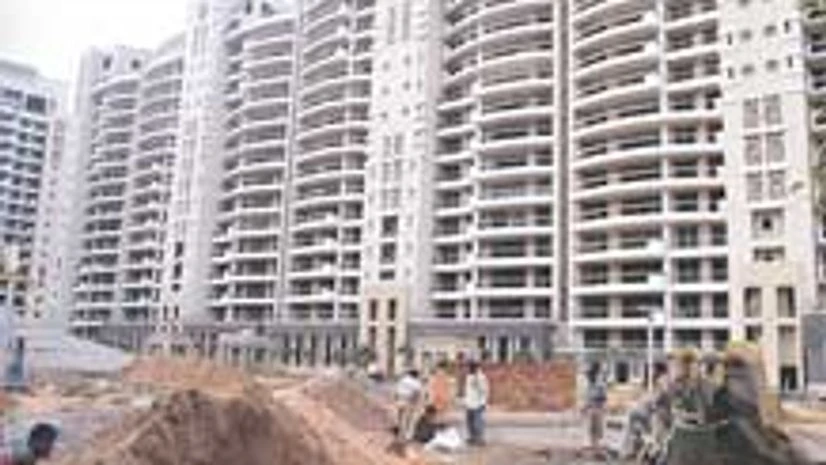It is true that buying a property in a project under construction offers greater advantages than purchasing a ready property. To begin with, the price of a property under construction is lower because there is no immediate possession. For a ready-property, the seller charges a premium for ready possession. In under-construction property, buyers get time to arrange for funds.
The Income-Tax Act provides for tax exemptions on long-term capital gains earned from the transfer of a capital asset if the sale proceeds are invested in a house property within the time prescribed under section 54F of within two years from the date of transfer or within one year prior to the date of transfer.
If a taxpayer wants to construct her/his own house, the time limit to complete the construction is three years from the date of transfer. On similar lines, Section 54 provides exemption from long-term capital gains earned from the transfer of a house property if the sale proceeds are invested in another house property within the prescribed time.
| GAINING FROM PROPERTY SALE |
|
But if the possession is delayed by the developer when investing in an under-constructed property, would a person be allowed exemption?
This question recently came up before the Delhi Tax Tribunal in an appeal filed by the Income-Tax Department. In the case, the tax payer had sold a house at Meerut on 13 June 2008 for Rs 51 lakh. On this, long-term capital gains were computed at Rs 31 lakh. Deduction under Section 54 was claimed for the entire capital gains on account of investment in property at Bangalore. Further, the tax payer had sold a plot in Meerut on 10 November 2008 for Rs 24.8 lakh incurring long-term capital gains of approximately Rs 20 lakh. The tax payer claimed deduction under Section 54F for this entire amount on account of the investment in the same house at Bangalore. Thus, for long-term capital gains of Rs 50 lakh, the tax payer claimed exemption under Section 54 / 54F against the advance payment made to the developer of Rs 42.50 lakh and another Rs 14.5 lakh towards a deposit in the Capital Gains Account Scheme. (Capital gains can be temporarily parked in an account as designated above for the time prescribed under Section 54/54F to complete the investment.)
In the course of the assessment, the tax officer was of the view that, as the original assets were sold on 13 June 2008 and 10 November 2008, the new house required to have been purchased by 12 June 2010 to claim deduction under Section 54 and by 9 November 2010 for the claim under Section 54F. However, it was observed by the tax officer that the tax payer had advanced monies to the developer on an agreement and deposited the money in the capital-gains account scheme, but no house had been purchased till the date of the assessment order when the period of two years, as calculated above, had lapsed. In the course of the assessment, the tax payer explained that she had entered into an agreement on 18 December 2008 to purchase a flat for Rs 60 lakh and had paid the builder Rs 42.50 lakh on different days between 31 May 2008 and 31 December 2008, and deposited Rs 14.5 lakh in the capital-gains account scheme in July 2009. The tax officer was not convinced by the explanation and allowed deduction of Rs 14.5 lakh on account of the deposit in the capital-gains account; the balance of Rs 36 lakh was held as taxable.
Aggrieved by the order, the tax payer preferred an appeal. Before the first appellate authority it was submitted that the builder agreed to allow possession of the flat on or before 30 September 2009, i.e., within 15-16 months of the date of transfer of the original assets. It was also submitted that the tax payer had invested in the property and the fault of non-completion was attributable to the builder, not the tax payer. Further, the tax payer claimed that there was no relationship between the tax payer and the builder. As such, there could be no occasion to consider connivance. The tax payer relied on a couple of decisions by various authorities in support of her claim.
In its decision, the appellate authority held that, in accordance with decisions of various courts, to obtain the benefits u/s 54 / 54F, the tax payer need not complete construction of a house and occupy it. It was enough if a tax payer established that investment of the entire required funds had been made within the stipulated period for the construction of the house. As the tax officers had not doubted the payment of the advance amount of Rs 42.5 lakh and no connivance between the tax payer and the builder had been brought on record, the appellate authority allowed the tax payer's claim for deduction.
Not happy with the said order, the Tax Department filed an appeal with the Tax Tribunal. The Tribunal, in its judgement, also supported the tax payer's claim and observed that according to the agreement, delivery of the house was scheduled before 30 September 2009, well within the stipulated time. Accordingly, the Tribunal ruled in favour of the tax payer.
To conclude, a host of decisions exist by various Courts and Tribunals that, if for reasons beyond the control of the tax payer, the builder has not completed construction, a tax payer, in her/his claim for deduction u/s 54/54F, cannot be penalised for a fault not hers/his.
The author is a chartered accountant

)
